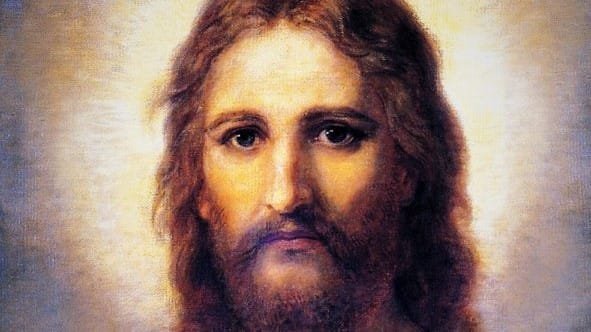Reflection homily on the 2nd Sunday in Ordinary Time Year B :
“HERE I AM LORD, I COME TO DO YOUR WILL (Ps 39).”
OUTLINE
- Divine vocation: universal and particular.
- Summary of ideas of today’s readings
- Putting our part to discern our specific vocation and help others to do so as well.
- Generosity and coherence between our vocation and our actions and life.
1. Divine vocation: universal and particular.
God has a specific plan for each one of us in this world. This divine plan is what is called divine vocation, which is nothing but our purpose of life in earth and the path which leads to authentic and eternal happiness.
Divine vocation is differentiated into universal and particular vocation.
- The universal vocation is the divine calling of all men and women towards holiness. “Be holy, for I, the Lord, am holy (Lev 19:2).”
- The particular vocation is the specific manner or concrete determination by which a person realizes his universal vocation to holiness .
- For example, as a married person, or as a celibate person, be it in priesthood, religious consecration (monks and nuns), or lay celibacy in that specific Church institution, ecclesial movement, religious order etc. …
2. Summary of ideas of 2nd Sunday in Ordinary Time Year B readings
Today’s readings focus on the need to have the proper dispositions in order to discern and respond generously to our divine vocation, and to help others know and respond to God’s calling.
- The 1st reading (1 Samuel 3:3b–10, 19) narrates the vocation of Samuel. Amidst the inklings of God calling him, Samuel replies: “Speak, for your servant is listening”
- Today’s Gospel (John 1:35-42) recounts the vocation of the Apostles Andrew and Peter. The former through the preaching of John the Baptist who showed to Andrew, the “Lamb of God,” Our Lord Jesus Christ; and Simon Peter, through his brother, Andrew’s testimony: “We have found the Messiah.” Both the Responsorial Psalm and the Gospel show us the proper response to God’s calling, to our divine vocation:
- “Here am I, Lord; I come to do your will (Ps 39).” “The two disciples heard what he said and followed Jesus (Jn 1:37).”
- However, in order to discern and respond positively to God’s calling, we have put our part.
3. Putting our part to discern our specific vocation and help others to do so as well.
As the 1st reading and Gospel show us, we need to be properly disposed and available to know what God wants from each one of us for on this depends our happiness in this life and the next.
- Samuel was willing to discover what God wants from him, telling Our Lord to speak for he was listening.
- John the Baptist, and the two disciples which followed Jesus, one of whom is Andrew, showed Christ to the people God placed on their path. This resulted to Peter’s encounter with Christ and following him, to be later the head of the Apostles, and the rock on which Christ’s Church is built.
For us to discover what really matters most in our life which is our specific divine vocation, we must employ the means in order to know what God wants from us. The means are:
- daily dealings with God through prayer and the sacraments, especially that of Confession and of the Holy Eucharist;
- personal apostolate based on friendship, to show Christ to others and lead them to Him;
- spiritual direction under a prudent and exemplary person
- our daily struggle to live the Christian and human virtues so that God’s grace could find a fertile ground on which it could grow.
4. Generosity and coherence between our vocation and our actions and life.
“Here I am, Lord. I have come to do your Will.” This is the proper reply to our divine calling. This, reply, however, is not only given once in a lifetime, but rather, must be actualized day in and day out, for God’s will is manifested not only once in our life, but many times during the day.
Our divine vocation, whatever it may be, has consequences.
- For example, St. Paul reminds us in the 2nd reading (1 Cor 6:13c–15a, 17–20) that since we have been called in Christ and we are temples of God, we must then glorify God in our body, emphasizing the importance of the virtue of holy purity, one of the many consequences and requirements to live holiness according to one’s state of life.
“Do you not know that your bodies are members of Christ? But whoever is joined to the Lord becomes one Spirit with him. Avoid immorality. Every other sin a person commits is outside the body, but the immoral person sins against his own body. Do you not know that your body is a temple of the Holy Spirit within you, whom you have from God, and that you are not your own? For you have been purchased at a price. Therefore glorify God in your body.”
Let us then ask God for us to put our part and to put the means in order to discover our specific divine vocation and respond with the same words of the Psalm: “Here I am, Lord. I have come to do your Will” not only once but with an actual, renewed and daily generous response.
SEE AS WELL:
Stay updated: subscribe by email for free TO OUR NEW WEBSITE www.catholicsstrivingforholiness.org (PUT YOUR EMAIL IN THE SUBSCRIBE WIDGET).
We are also in www.fb.com/Catholicsstrivingforholiness. Kindly help more people in their Christian life by liking our page and inviting your family, friends and relatives to do so as well. Thanks in advance and God bless you and your loved ones! Fr. Rolly Arjonillo
